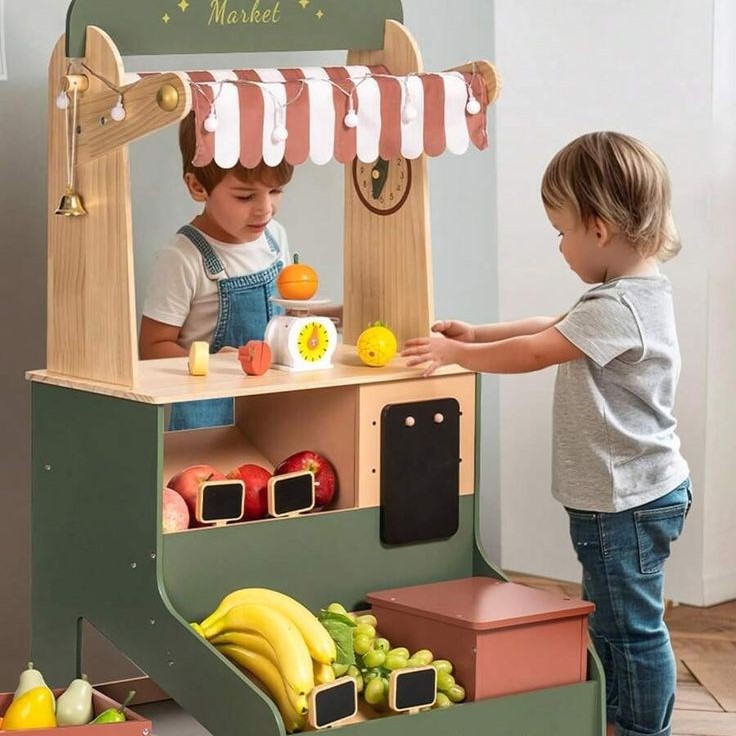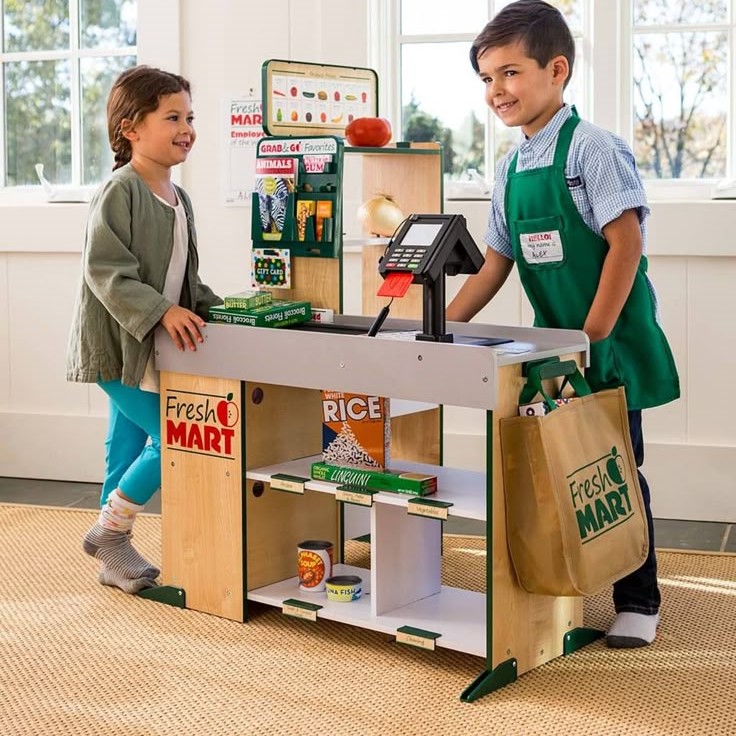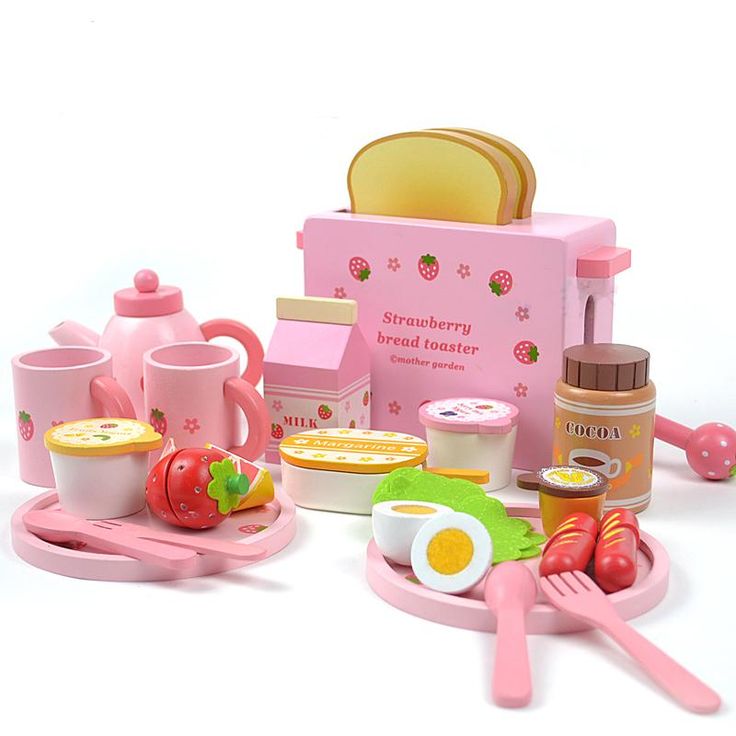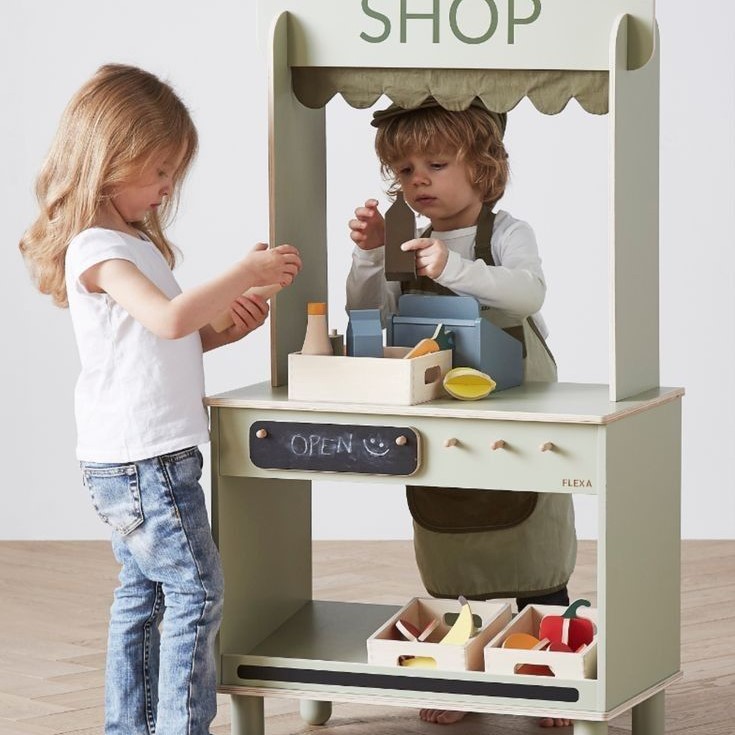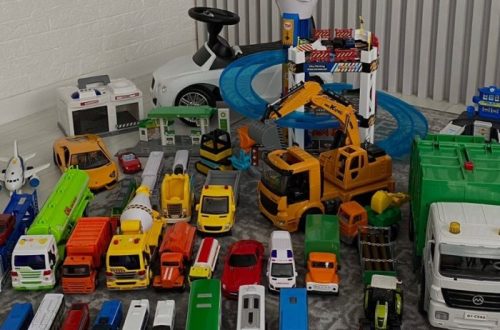Introduction
Pretend play is a vital aspect of childhood that plays a pivotal role in cognitive, emotional, and social development. Pretend play toys serve as the perfect tool to inspire creativity and imagination in kids. By engaging in role-play scenarios, children explore their surroundings, learn to navigate social interactions, and better understand the world around them. One integral aspect of pretend play is its ability to foster and enhance social skills—an essential part of growing up.
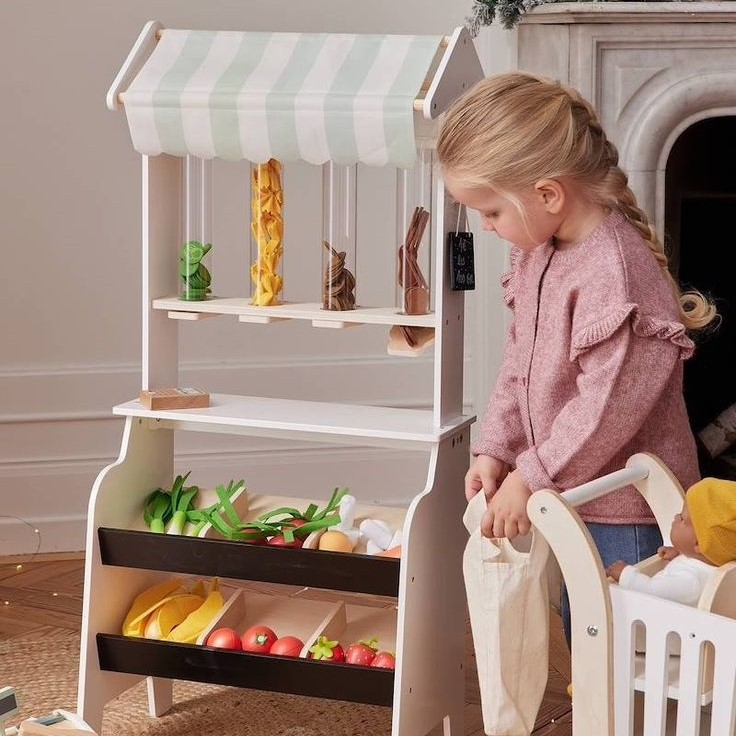
In this article, we will dive into the benefits of pretend play toys that specifically encourage social skills in children. We’ll examine various unique toys to consider, explore their contributions to social development, and provide tips for parents looking to enrich their child’s playtime experience.
Understanding Social Skills Development
Social skills encompass a wide range of behaviors that allow individuals to interact positively and effectively with others. For children, these skills include:
- Communication: Expressing thoughts and feelings clearly, both verbally and non-verbally.
- Collaboration: Working together with others towards a common goal.
- Empathy: Understanding and appreciating the emotions of others.
- Conflict Resolution: Navigating disagreements in a positive manner.
- Self-regulation: Managing emotions and behaviors in social settings.
Engaging in pretend play directly influences the development of these essential skills. Children practice scenarios that involve communication, cooperation, and problem-solving.
Benefits of Pretend Play Toys for Social Skills
Pretend play toys provide a platform for children to engage in role-play, which is crucial for social skills development. Here are some key benefits:
- Encouragement of Collaboration: When children play together using pretend play toys, they often need to work collaboratively to create stories or scenarios. This interaction fosters teamwork, mutual respect, and negotiation skills.
- Building Communication Skills: Role-playing encourages children to communicate their ideas, intentions, and feelings. Through dialogue and play-acting, they learn how to express themselves clearly.
- Enhancing Empathy: As children step into different roles, they become more aware of others’ perspectives and feelings. This practice develops their empathetic skills, essential for emotional intelligence.
Unique Pretend Play Toys to Consider
The right pretend play toys can significantly enhance social skill development. Here are some unique options to consider:
- Dramatic Play Sets: Toys such as kitchen sets, doctor kits, and fire station playsets allow children to act out everyday scenarios. These toys encourage storytelling and help children learn to collaborate and share ideas as they play.
- Puppet Theater: A puppet theater set is a fantastic way for children to express themselves while promoting social interaction. Children can create their own puppet shows, encouraging collaboration and teamwork as they develop scripts and act them out.
- Dress-Up Costumes: Costumes that allow kids to become different characters help stimulate imaginative play. As children embody various roles, they experiment with communication styles and explore different perspectives.
- Board Games: Certain board games are designed to encourage storytelling and discussion among players. Games that require cooperation, such as team-building challenges, help foster social skills while making playtime fun.
- Interactive Storybooks: Books that involve children in storytelling or decision-making processes can help develop their social skills. Interactive read-alouds encourage dialogue and collaboration as children share their thoughts on the story.
How to Encourage Social Play
As a parent, you can take active steps to foster social skills in your child through pretend play. Here are several effective strategies:
Facilitate Group Playdates
- Organize Playdates: Arrange regular playdates with multiple children to create opportunities for social interaction. These gatherings provide children with the chance to engage in group activities and develop their communication skills.
- Encourage Interaction with Pretend Play Toys: Select a range of pretend play toys relevant to different interests, such as kitchen sets, doctor kits, and dress-up costumes. This variety allows children to explore different roles and scenarios, fostering creativity and team-building skills.
- Promote Collaborative Play: Encourage children to team up and create stories or games together. Collaborative play can involve setting up a pretend restaurant or a pirate adventure, promoting teamwork as they work towards a common goal.
- Monitor Play Dynamics: Keep an eye on how children are interacting. This observation helps identify areas for improvement, such as negotiating toy-sharing or resolving conflicts, allowing you to step in when necessary.
Model Social Interactions
- Demonstrate Positive Behaviors: While playing with your child, exemplify positive social interactions. Show kindness, patience, and respect for their ideas. This modeling helps children learn appropriate ways to communicate with others.
- Utilize Role-Playing Scenarios: Use role-playing to illustrate effective communication strategies, such as how to greet someone, share toys, or express feelings. Incorporating real-life situations into play helps children understand and practice social norms.
- Focus on Problem-Solving: While engaged in play, introduce conflict scenarios for role-play, such as deciding whose turn it is for a toy. Demonstrate resolution tactics, such as compromising, and encourage your child to express their feelings and opinions in such situations.
- Encourage Reflection: After playing together, talk about the social interactions experienced during the play. Discussing what went well and what could be improved will solidify the lessons learned during playtime.
Encourage Open Discussion
- Engage in Conversations: After playtime, take a moment to discuss what happened during the pretend play. Ask your child open-ended questions to promote dialogue, such as “What was your favorite part of the game?” or “How did you feel when that happened?”
- Discuss Emotions and Choices: Encourage your child to articulate their feelings during the play. For example, you can ask, “How did you feel when you played the role of the teacher?” This promotes emotional intelligence and helps them articulate their experiences better.
- Explore Social Dynamics: Use the discussions to explore various social dynamics and scenarios that occurred during play. Engaging in these conversations helps enhance your child’s understanding of roles, relationships, and group dynamics.
- Foster Active Listening: Teach your child the importance of listening while others speak during discussions. This skill is essential for successful social interactions and can encourage them to consider perspectives different from their own.
Create Safe Spaces for Play
- Build a Safe Environment: Create a designated play area where children feel safe to express themselves. This space should be free of sharp objects or hazards, ensuring that children can engage in active play without worry.
- Design Inviting Spaces: Make the play environment warm and inviting. Use soft furnishings, colorful decorations, and readily accessible toys to create a comfortable atmosphere that encourages imaginative play.
- Limit Distractions: Ensure that the play area minimizes distractions from other household activities, such as loud music, intense screen time, or clutter. A distraction-free environment allows children to focus and engage deeply in their pretend play.
- Encourage Exploration: Within the safe space, allow children the freedom to explore their creativity. Provide opportunities for them to set up their own play scenarios and determine the direction of their storytelling. This freedom fosters independence and self-expression in a supportive context.
By implementing these strategies, you can significantly enhance your child’s social skills through pretend play. Facilitating group playdates, modeling positive interactions, encouraging discussions, and creating safe spaces will foster an enriching environment that cultivates both creativity and social growth.
The Role of Educators in Fostering Social Skills
Educators play a crucial role in promoting social skills through pretend play in educational settings. Here’s how they can contribute:
- Incorporating Pretend Play into Curricula: Teachers can integrate pretend play into lessons to provide experiential learning opportunities. Creating designated play areas with various toys encourages imaginative play and collaboration among classmates.
- Observing Social Interactions: Educators can monitor playtime to observe how children interact. This information can be used to identify areas where additional support or guidance may be needed.
- Providing Structured Activities: Organized activities that involve pretend play can help children learn to take turns, follow rules, and support each other throughout the experience. Structured play provides a framework for developing interpersonal skills.
Emotional Connection Through Pretend Play
Beyond social skills, pretend play toys contribute positively to children’s emotional well-being:
- Coping Mechanism: Children often use pretend play as a means to process their emotions. They can experiment with different scenarios, helping them develop coping strategies for real-life situations.
- Self-Expression: Through role-play, children can express their thoughts and feelings in a safe manner. This form of expression is crucial for emotional development and can help build self-esteem.
- Confidence Building: Engaging in pretend play fosters a sense of accomplishment. Successfully navigating role-play scenarios boosts children’s confidence, allowing them to approach social settings with more assurance.
Conclusion
In conclusion, investing in pretend play toys can significantly enhance your child’s social skills. Through role-playing and imaginative scenarios, children learn valuable interpersonal skills, such as communication, collaboration, and empathy.
By exploring unique pretend play toys and implementing strategies to encourage social interaction, you can create a nurturing environment that supports your child’s development. As they engage with their toys and peers, they will not only gain confidence but also acquire important life skills that will serve them well as they grow. Embrace the power of pretend play and watch your child flourish—both socially and emotionally!
